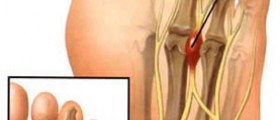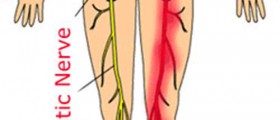Loading...
I too injured my phrenic nerve in a whiplash / head injury . I see a postural physical therapist who helps me position my body in ways to release it and works with me on breathing. Do you ever suffer from extreme indigestion and abdominal pains
Loading...
Loading...
Loading...
Shellie
Loading...
Phrenic nerve can be inflamed by a chronic viral infection. Usually it is one or more of 61 different strains of the Epstein-barr virus. Medical research can only test for a few of these strains. The virus is difficult to heal but it can be done if you follow the information. This could and probably will solve your chronic breathing issue. This is life changing information that u should take very seriously.
***this post is edited by moderator *** *** web addresses not allowed*** Please read our Terms of Use
Loading...
11 months ago this says. Please tell me what happened!! I KNOW now after 6yrs of my own research and pain and misery what my surgeon could have warned me (disclosed) about before surgery or had the human decency of telling me what he did after the surgery. came across Dr Kaufman too and live in NJ but put it on back burner bc I'm so afraid any intervention will make "suffocation" worse, In my case , pain from surgery injury of phrenic causes spasm or palsy and I stop breathing....full stop, So I've been kept alive for 6yrs by keeping pain under control with pain meds. Without them I die and I had to find all this out on my own. been to tons of doctors. Please please respond !!!
Kelly
Loading...
Loading...
Phrenic nerve is important for breathing, as it passes motor information to the diaphragm and receives sensory information from it.
This nerve controls the diaphragm muscle, which controls the breathing process. When diaphragm contracts, the chest cavity expands and creates room for inhaled air. And its the phrenic nerve primary function to carry out this process.
There are numerous causes of phrenic nerve lesions:
• Mechanical trauma: ligation or damage to the nerve during surgery. • Compression: due to a tumour within the chest cavity. • Myopathies: such as myasthenia gravis. • Neuropathies: such diabetic neuropathy.
Paralysis of the diaphragm produces a paradoxical movement. The affected side of the diaphragm moves upwards during inspiration, and downwards during expiration. A unilateral diaphragmatic paralysis is usually asymptomatic and is most often an incidental finding on x-ray. If both sides are paralysed, the patient may experience poor exercise tolerance, orthopnoea and fatigue. Lung function tests will show a restrictive deficit.
Loading...
Loading...
Hi there, my mother had an operation over a year ago for atrial fibrillation. Unfortunately the surgeon damaged her Phrenic nerve whilst trying to rectify the procedure and this has basically ruined her life. She can barely walk up the stairs, any hills and some days are worse than others. Even walking gently is a problem for her. She also coughs a lot especially in the mornings. She is always out of breath and trying to catch her breath terrifies her.. Basically there isn't anything they can do when the nerve is damaged. If I was your friend I would get a lung test done and ask them to check the nerve isn't damaged. They may try fobbing you off because it's probably expensive but demand it. Good luck. ***this post is edited by moderator *** *** posting of web addresses is not allowed*** Please read our Terms of Use
Loading...

















